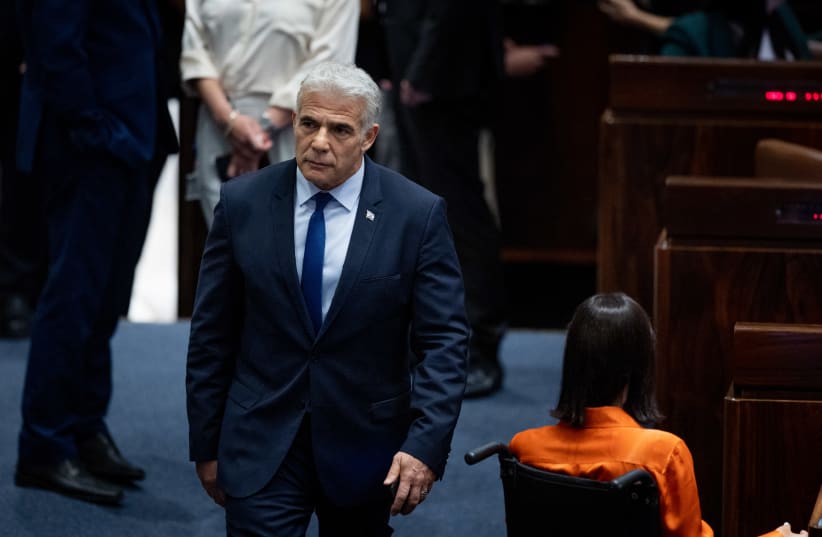As prime minister of a caretaker government, Yair Lapid will be limited in what he can do. The Knesset will not be in session, so anything that is not urgent and requires a parliamentary vote can’t happen.
In addition, Attorney-General Gali Baharav-Miara’s legal opinion restricts political appointments and major policy decisions to what is absolutely necessary – and she is the arbiter of necessity.
One of the few spheres in which the law does not restrict the prime minister of an interim government is diplomatic affairs.
Despite this, Lapid’s tenure, which could be as short as five months, will likely be one of continuity.
Lapid and Naftali Bennett worked closely together when the former was foreign minister and alternate prime minister and the latter was prime minister, coordinating much of their moves.
As such, a source close to Lapid said no one should expect a revolution in the coming months.
Joe Biden's visit
As such, a source close to Lapid said no one should expect a revolution in the coming months.
When US President Joe Biden visits Israel in two weeks, Lapid will be the one greeting him on the tarmac, not Bennett, but the messages will be similar – particularly when it comes to the focus on the Iranian threat and a planned announcement of an agreement with Saudi Arabia, though not the full normalization Israel would like to see.
Lapid will retain the title of foreign minister and is set to continue his efforts to deepen ties with friendly Arab states, improve Israel’s bipartisan support in Washington and strengthen relations with the EU and many individual member states. Poland, however, is a notable exception.
There are two areas in which Lapid will likely differ from Bennett in subtle but possibly impactful ways.
First is the Palestinians. The chance that Lapid would enter peace talks as the head of a caretaker government is slim, although the reasons for this have nothing to do with him.
For one, Palestinian Authority President Mahmoud Abbas is too politically weak to lead such a process. Lapid’s plan for Gaza, involving massive economic reform in exchange for demilitarization, is unlikely to go far in such a short period of time, either.
At the same time, this government has said that it supports moves to improve Palestinians’ quality of life, and the Biden administration continuously pushes Jerusalem to make gestures towards Ramallah and Gaza beyond increasing the numbers of permits to work in Israel.
Lapid may be more open to potentially controversial moves that Bennett rejected, such as allowing Palestinians to work at the Allenby crossing between Israel and Jordan.
Unlike Bennett, Lapid won’t have to worry about the coalition breaking up over his decisions.
Ukraine-Russia war
Another area in which Lapid differed sharply from Bennett was Russia’s war on Ukraine. Lapid has said he was voicing a principled position on the war, immediately speaking out against the Russian invasion and calling Moscow’s actions a war crime. He repeated those statements several times. Bennett, however, only expressed sadness about the loss of life and tried to mediate between the countries.
Lapid and Defense Minister Benny Gantz advocated for Jerusalem to provide military aid to Kyiv in a March Security Cabinet meeting about Israel’s position on the war.
Bennett, however, who was concerned that doing so would risk Israel’s deconfliction mechanism with Russia in Syria, prevailed.
There has not been a Security Cabinet discussion about Ukraine in the ensuing months.
The war in Ukraine is no longer getting much attention in Israel since the Ramadan wave of terrorism and political turmoil reached the top of the agenda, but that is one area in which Lapid has the potential to upend Bennett’s policy.
Overall, however, consistency will likely be the name of Lapid’s diplomatic game. With so much of Israel’s international relations in his hands as foreign minister for the past year, don’t expect big changes in the coming months.

